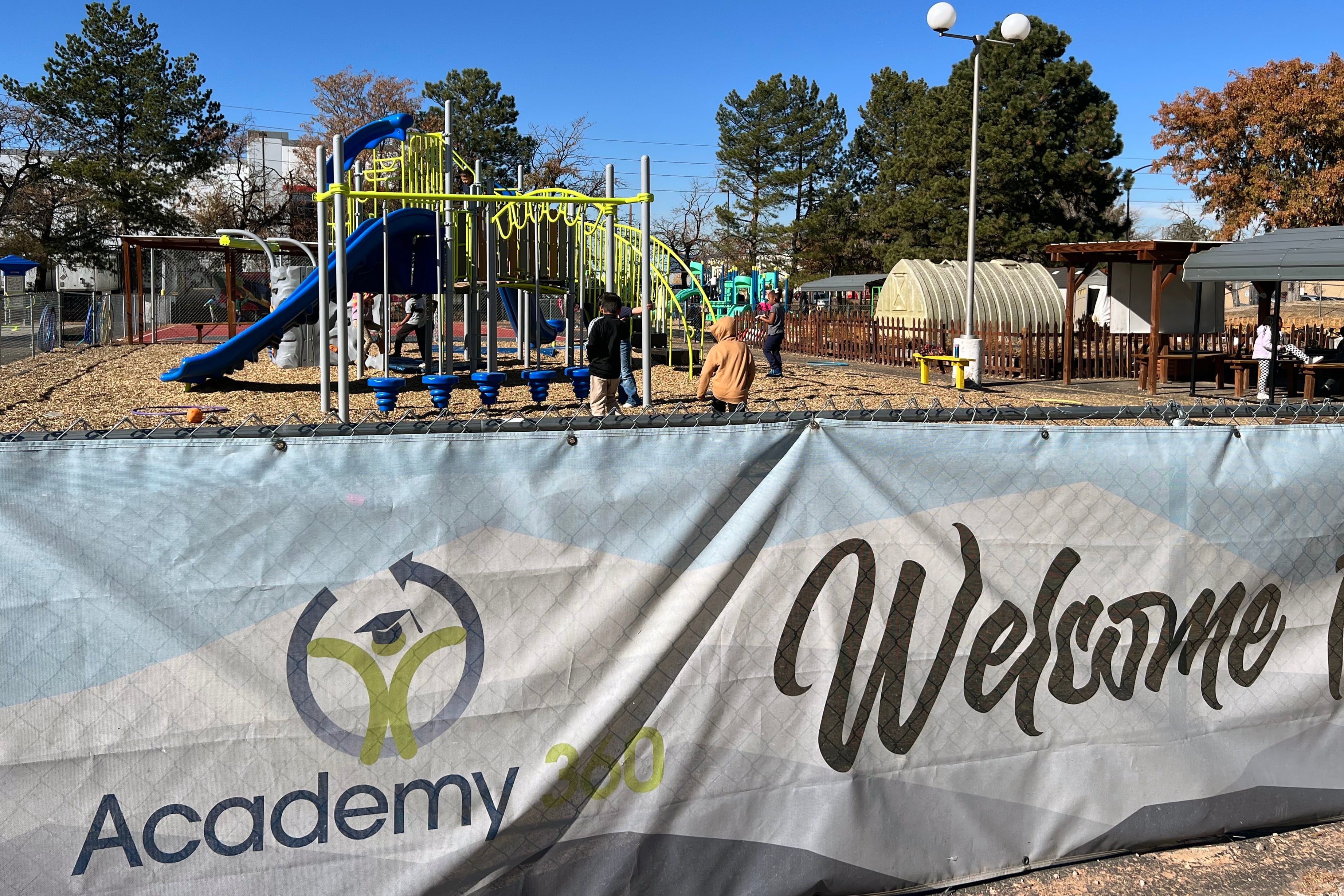Sign up for Chalkbeat Colorado’s free daily newsletter to get the latest reporting from us, plus curated news from other Colorado outlets, delivered to your inbox.
In a 5-2 vote, the Denver school board rejected a recommendation from Superintendent Alex Marrero Thursday to close Academy 360, a small charter school with low test scores.
Board members cited several reasons for keeping the school open, including the mental health support it provides students and families, school leaders’ commitment to boosting academic achievement, and the fact that nearby schools don’t have high test scores either.
“I don’t believe in shifting around Black and brown children from one failing school to another failing school,” board Vice President Auon’tai Anderson said.
Board member Carrie Olson, who was a teacher at a Denver middle school that was closed for low test scores, also noted that school closures can be traumatic for students.
“We want to give you another chance,” she said, addressing Academy 360 staff and supporters, “and we have to see that you’re doing right by all students. Because I don’t want to incur more pain and I know the trauma of having a school being closed.”
Board President Xóchitl “Sochi” Gaytán and member Scott Baldermann were the only two to vote yes on closing Academy 360. Given Denver Public Schools’ declining enrollment, Gaytán said that refusing to close low-performing charter schools would make the district’s problem of too few students and too many schools worse, especially for district-run schools.
Academy 360 opened in 2013 in Montbello, the brainchild of a young educator who imagined a charter school focused on mental and physical health and wellness that would outperform the neighborhood’s struggling district-run schools.
Ten years later, Academy 360 serves 230 students — with five classrooms of preschoolers, one classroom each of kindergarten through fifth grade, and a special education program for students with autism. Nearly 90% of students are students of color, 78% are from low-income families, 34% are English language learners, and 24% have disabilities.
Academy 360 has struggled academically. This year, it earned the lowest possible state rating, signified by the color red. Its students in grades 3-5 scored in the first percentile on state literacy and math tests last spring, meaning 99% of Colorado students scored higher.
The board voted earlier this year to close a different charter school with similar scores. But that school, STRIVE Prep - Kepner, then in the midst of a merger with the higher-performing Rocky Mountain Prep charter network, didn’t protest Marrero’s closure recommendation. Academy 360 did protest — and the majority of board members sided with the school.
Irrespective of the STRIVE vote, Marrero previously expressed concerns that allowing Academy 360 to remain open would set a precedent that Denver Public Schools doesn’t close charter schools, no matter how low their test scores. He said the premise of independently run charter schools is that they’re granted extra flexibility but also held accountable for their results.
Board members said they understood Marrero’s reasoning, but didn’t agree in this case.
“My stance is not an attempt to excuse charter schools from their obligations,” board member Michelle Quattlebaum said. “Rather, it reflects the nuanced nature of the learning process and the exceptional circumstances that may warrant deviations from established norms.”
Melanie Asmar is a senior reporter for Chalkbeat Colorado, covering Denver Public Schools. Contact Melanie at masmar@chalkbeat.org.








